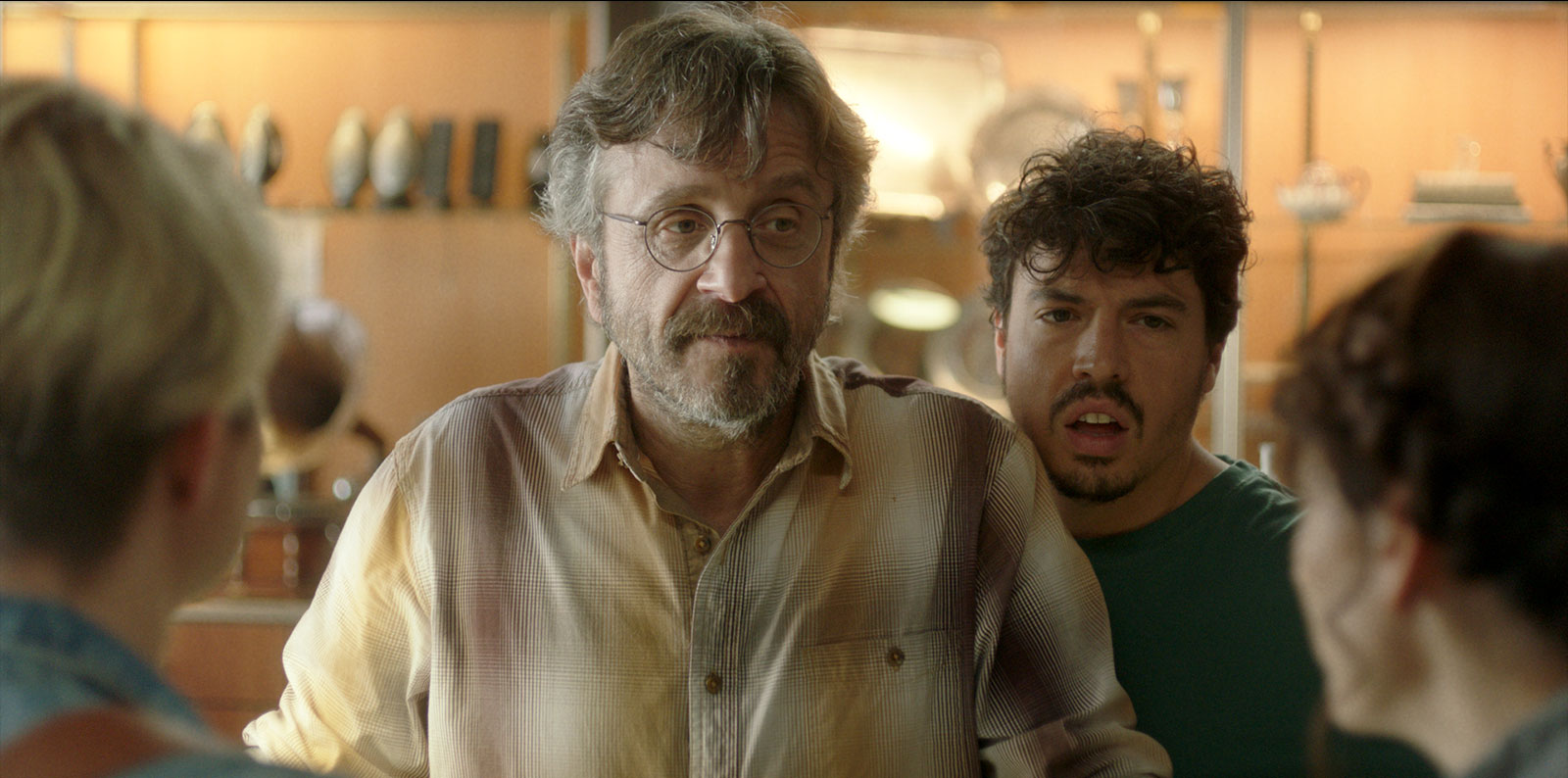Film Review: Sword of Trust (2019)

Despite some melodramatic flaws, Sword of Trust is a very funny, and slightly scary, look at the “Civil War Truth” movement that (unbeknownst to me) has gained steam in recent years. Call me ignorant but until Lynn Shelton’s movie and a recent trip to a rural bar in a small North Carolina tourist town near where I live, I was unaware of the existence of this particular group of conspiracy theorists. It had never occurred to me that there might be those out there who disputed the outcome of the Civil War – er, excuse me, the War of Northern Aggression. In all seriousness, I shouldn’t be the least bit surprised, but here I sit, dumbfounded.
In Sword of Trust, Marc Maron plays a pawn shop owner in Birmingham, Alabama who runs across a Civil War sword that, supposedly, proves that the South won the war. Just how it proves anything is never made exactly clear, but that’s that nature of the “truth” beast, I suppose. With the help of his inept assistant (Jon Bass) and the couple who own the sword (Michaela Watkins and Jillian Bell), a plan is hatched to sell the sword to a mysterious collector through a yokel go-between named Hog Jaw (the brilliant Toby Huss).
Maron and the rest of the cast, while veering into absurdity from time to time, keep the film from becoming a full-blown farce by delivering believable performances in the face on a truly wacky premise. Sword of Trust is a small film and the cast performs at a level that is just right for its tone and depth. The eccentricities of the characters add to the story instead of forcing a ham-fisted one based on their outlandish behavior alone. We get to know them through the peculiar journey they’ve undertaken, and we believe why they’re on the journey through down-to-earth characterization and smart-alecky conversational dialogue.
What gets me, though, is the sometimes-lengthy set-up scenes near the beginning of the film that – while well-acted and funny in the right parts – don’t quite pan out or pay off in the later ones. Maron’s confession about how he came to own the pawnshop is set up in one of these earlier scenes, but we’re not given enough to truly understand the depth of his heartache. It still works, but it could work better. While it’s clear to see that he’s suffering, a deeper understanding of the nearly unseen character causing that suffering might have helped. At times, small foibles like this give Sword of Trust a Comedy Central or episodic TV aura that I’m sure it doesn’t want. Maron and the gang are great improvisational actors, but sometimes a bit more definition and arc might help with the more dramatic moments of the film.
I must admit that Sword of Trust is the exact type of neurotic, self-reflexive, independent film that I love to support, flaws and all. It stands in stark contrast to the Hollywood blockbuster machine that’s showing no signs of easing up, so if we want something different – like, ever – films like this are the answer. It’s smart, original, weirdly topical, and damned funny. It also sheds some light on an unenlightened train of thought that, one would hope, never has the opportunity to gain real steam thanks to unabashedly critical interpretations like this. You could do a lot worse with your money.

